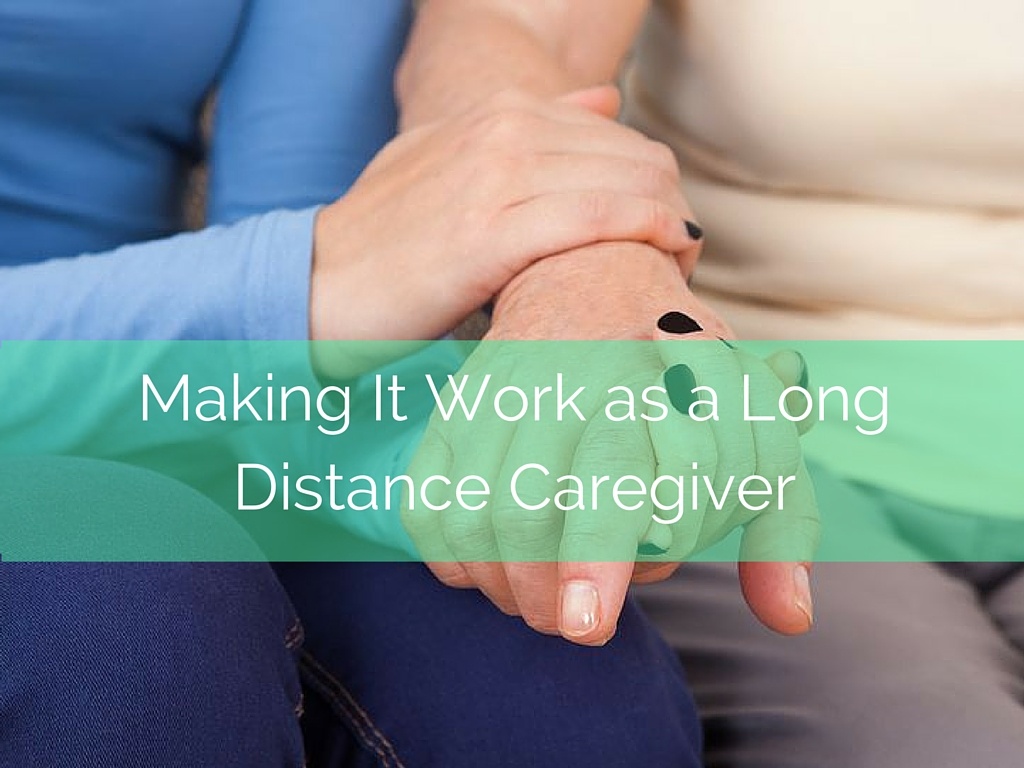
Mary's husband Jack was transferred from Dayton to his company's plant in California five years ago. The couple didn't have a choice but to relocate — the job required he be on site every day. But Mary's 85-year-old mother Helen still lives in an assisted living community in Cincinnati.
When they lived less than an hour away from Mary's mom, everything seemed fine, Mary never worried. She felt reassured that, if something happened to her mother, she could immediately step in and assist or provide additional care.
But now that she and Jack live 2,500 miles away, Mary feels a sense of trepidation.
How can you ensure that your senior parent is getting the care he or she needs if you live a long distance away? Luckily, there are many safety-net resources available for families that find themselves in such a situation.
Let's take a look at a few of them.
Having difficulty obtaining the right care? Contact the ODA Ombudsman Program.
The Ohio Department of Aging (ODA) Long-Term Care Ombudsman Program staffs experts and volunteers who are authorized by federal and state law to assist seniors and their families with questions and problems relating to long-term care providers such as nursing homes, assisted living retirement communities or in-home care services.
Ombudsmen are trained advocates who can help to mediate and resolve a complaint, when a senior or power-of-attorney requests ODA's involvement. An ombudsman can help you and your senior loved one understand and exercise his or her legally-protected resident rights.
Ombudsmen represent consumers' interests in national, state and local legislative and policy arenas and through membership in various advocacy groups.
They also provide counseling services to help seniors recognize and ask for what they want and need, and to help seniors and their families understand what to expect from their care providers.
Ohio's Ombudsman program is divided into regions of responsibility. For the Cincinnati area program, click here.
Need assistance with Medicare coverage?
The Ohio Department of Insurance's Ohio Senior Health Insurance Information Program (OSHIIP) exists to help seniors and their families sort out questions and difficulties pertaining to Medicare. It can, for example, help you or your parent choose the right Medicare coverage during open enrollment. It hosts informational webinars about available programs.
OSHIIP also hosts "Medicare Check-Up" events around the state, at which your parent can learn more about his or her insurance options and obtain unbiased information about differences between privatized managed care (Medicare HMOs/PPOs) and Medicare Part D prescription programs.
Questions about Medicaid or assistance programs?
The best way to start is by contacting the office of the Ohio Department of Jobs and Family Services (JFS) in your senior loved one's county of residence.
Although Medicaid is administered by the state's Center for Medicare and Medicaid Services (CMS), JFS case workers are responsible for collecting and processing Medicaid applications, and for approving other benefit programs (such as food stamps, utility vouchers, or cash assistance) on which many lower income seniors rely.
If you need to help your parent apply for assistance, applications for various programs can now be made online through the Ohio Benefits Bank. Seniors can even file their federal, state and local taxes free of charge through this service!
Problems making budget? Your parent may be eligible for subsidized long-term care.
The State of Ohio has a variety of housing and long-term care programs available for seniors of limited means. Depending on your parent's income and assets, he or she may be eligible for an Assisted Living Waiver, which pays the cost of care in approved nursing facilities and assisted living centers, or for an Ohio Home Care Waiver. In addition to assisted living, there are subsidized programs for seniors living at home who require transportation, personal care, physical and vocational rehabilitation, meal delivery and more.
There are plenty of resources that can help you ensure your senior parent is well cared-for.
In addition to the state resources listed above, the Council on Aging of Southwestern Ohio can connect you or your parent with care providers and other programs in the area. And the local chapter of the AARP is also available for you to consult.
Providing care for a senior from a long distance away isn't an ideal situation. But when it is a necessity, know that there are plenty of agencies and volunteers right here in Cincinnati who can help your parent get the care he or she needs and deserves.













